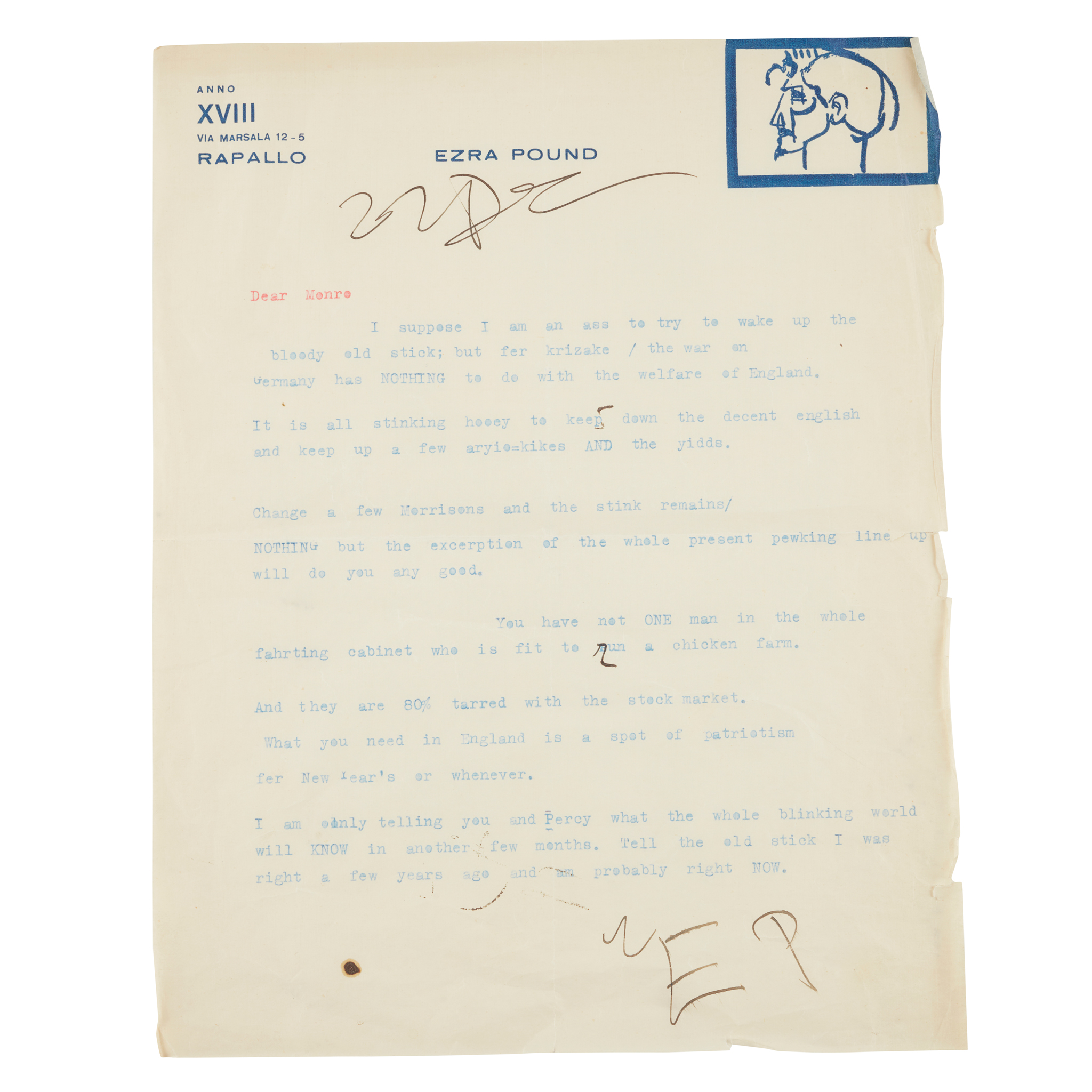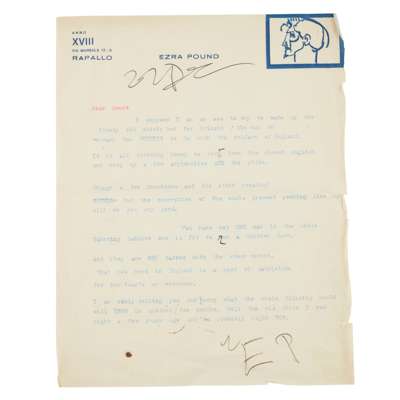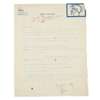
Lot 225

Pound, Ezra (1885-1972)
Typed letter signed


Rare Books, Manuscripts, Maps & Photographs
Auction: 19 June 2024 from 10:00 BST
Description
Rapallo, c.1939. Typed in blue ink on one side only of Pound's Rapallo stationery, 28.3 x 22cm, containing his address upper left and profile portrait after Gaudier-Brzeska upper right, both printed in blue, typed salutation in red to ‘Dear Monro’, illegibly annotated by Pound at head and signed ‘EP’ at foot, one autograph correction, all in black ink, toned, old folds, slightly nicked and rumpled along right edge
Footnote
A deranged and vitriolic letter revealing the extent of Pound's monomaniacal antisemitism, in which he dismisses the war as ‘all stinking hooey to keep down the decent english and keep up a few aryie-kikes AND the yidds’, adding that ‘You have not ONE man in the whole fahrting cabinet who is fit to run a chicken farm. And they are 80% tarred with the stock market’. Pound's own contribution to the war was as one of the main propagandists for Mussolini's fascist government, delivering over 100 broadcasts on Italian state radio. After the liberation of Italy he was arrested for treason by American forces and subsequently incarcerated without trial in St Elizabeth's psychiatric hospital in Washington, DC.
The recipient of this letter was Ion Smeaton Munro (1883-1970), a journalist and decorated army officer of Scottish origin who between the wars worked as the Rome correspondent of Glasgow's Morning Post and subsequently the Daily Mail. 'He was appointed press attaché at the British embassy in 1938 and then, on Italy’s declaration of war, he was posted as head of the Italian section at the Ministry of Information. He rejoined the army in 1941 and served on Wavell’s staff in India. When the invasion of Italy was being prepared he flew to North Africa, later entering Rome with the liberating army in June 1944. He was a chief press officer during the Italian campaign, and when demobilised he became press liaison officer in the Foreign Office conference department specially concerned with UN affairs in London. In the 1946 New Year honours list Lieutenant-Colonel Munro was awarded the OBE (Military) for “gallant and distinguished service in Italy”’ (Duncan Beaton, ‘The Notable Descendants of John Munro’, in A. O. M. Clark, ed., The Kist: The Magazine of the Natural History & Antiquarian Society of Mid-Argyll, no. 45 (Spring 1993), pp. 6-7). Munro wrote two books on his Italian experiences, Through Fascism to World Power: A History of the Revolution in Italy (1933), and Beyond the Alps (1934).

